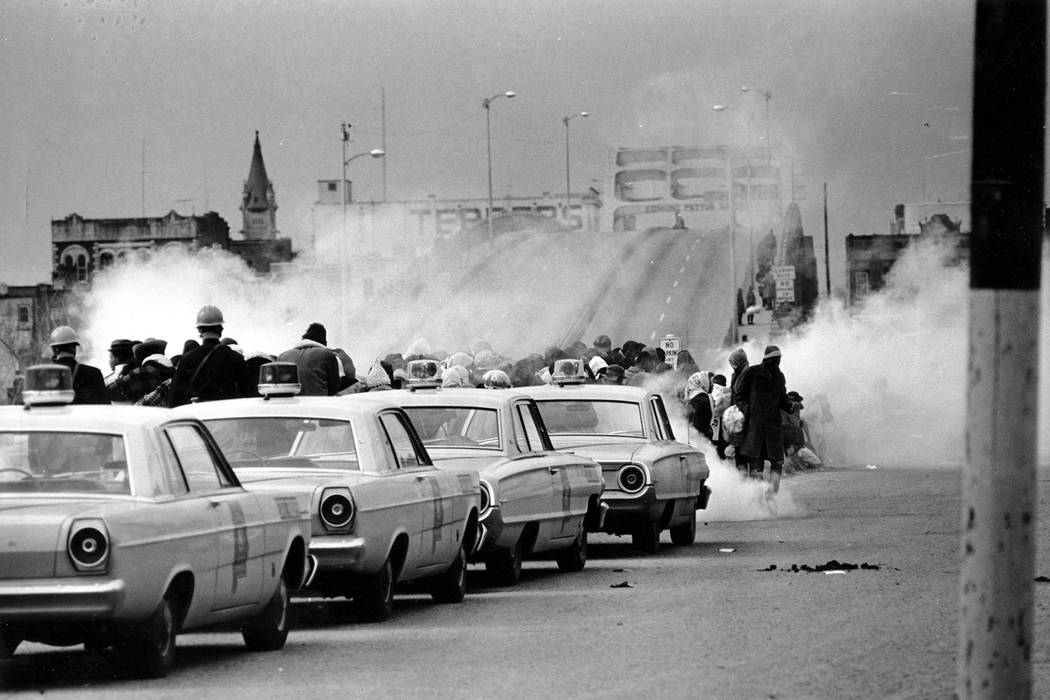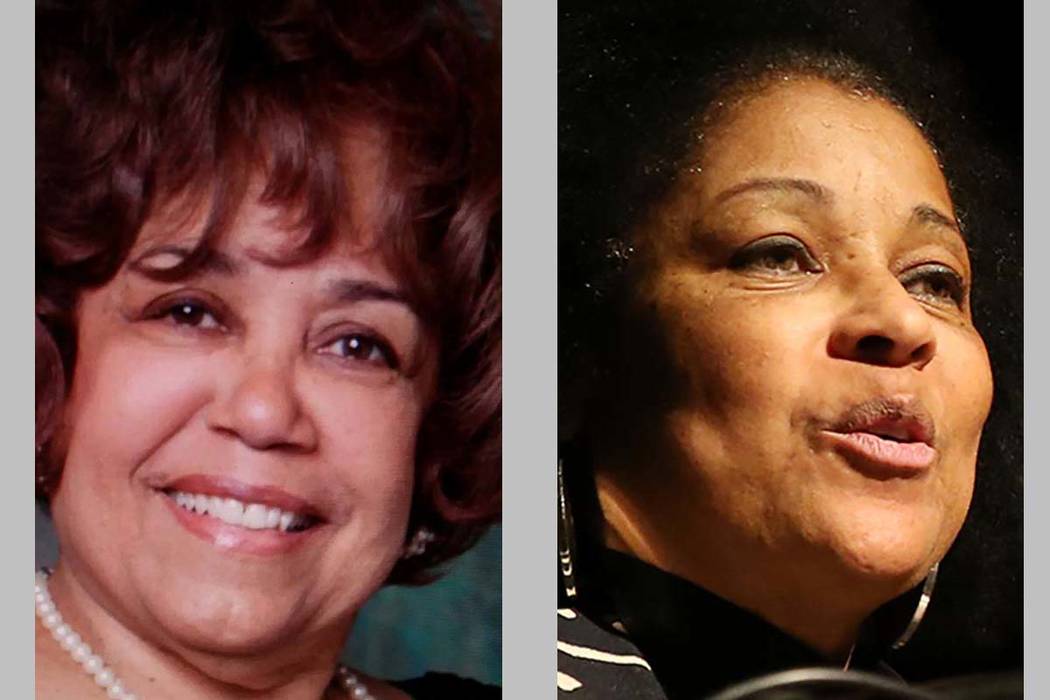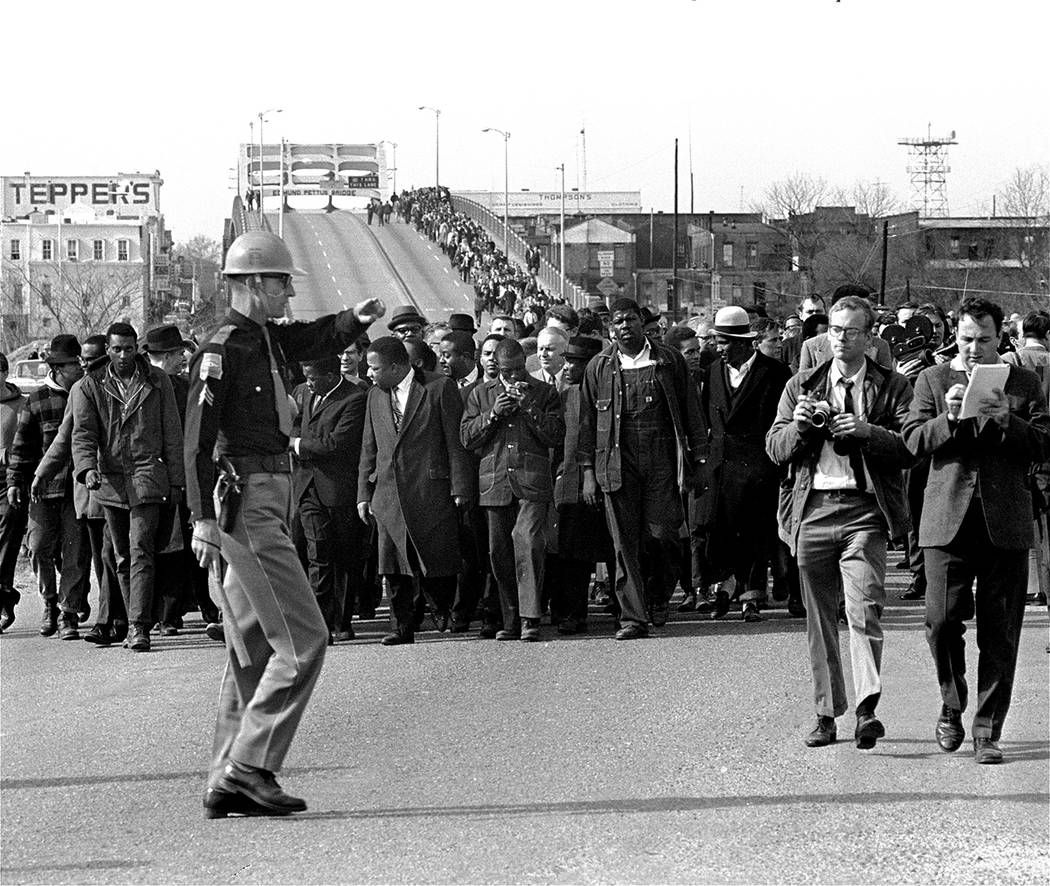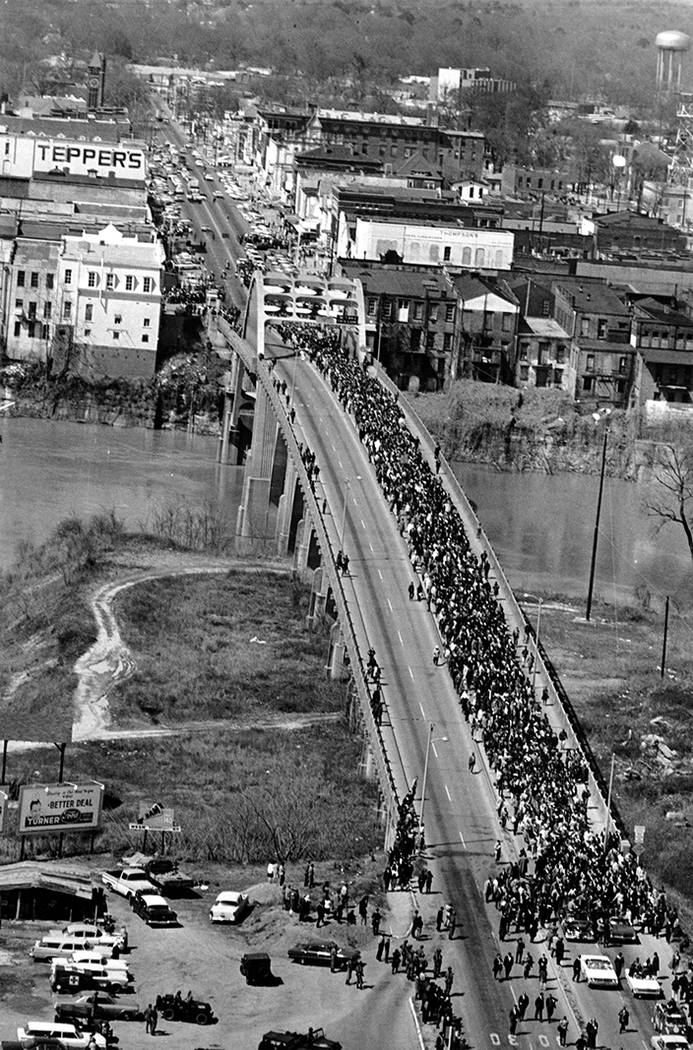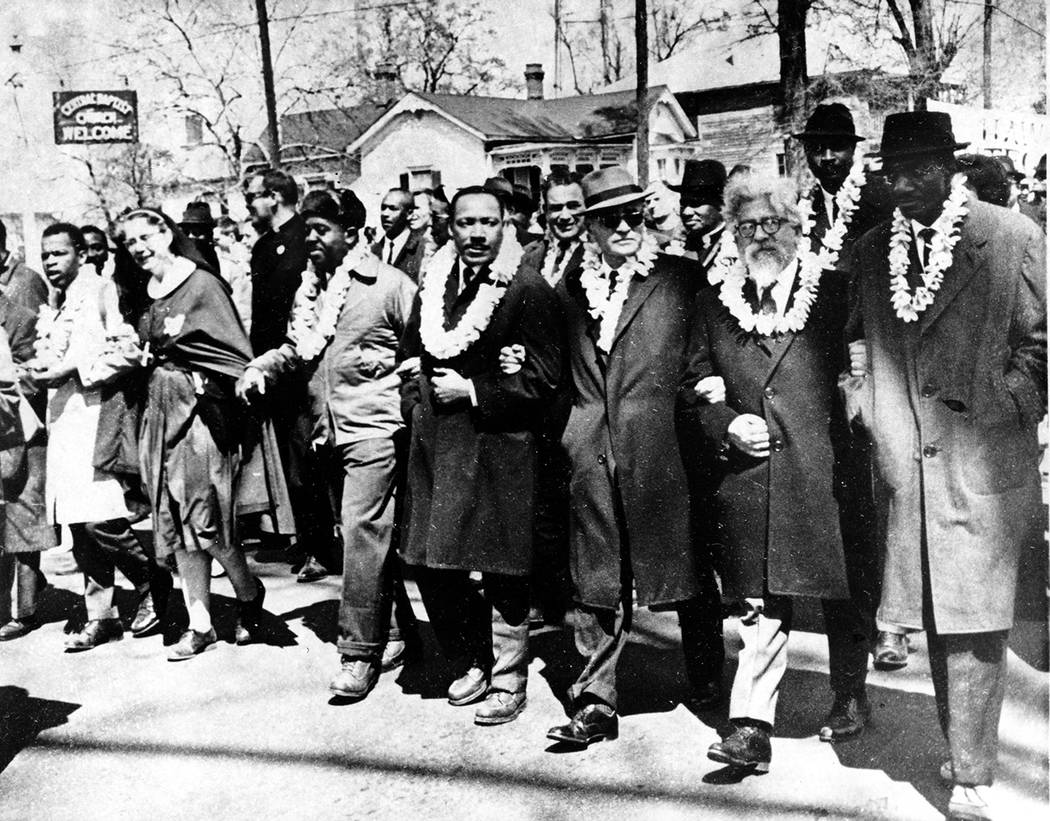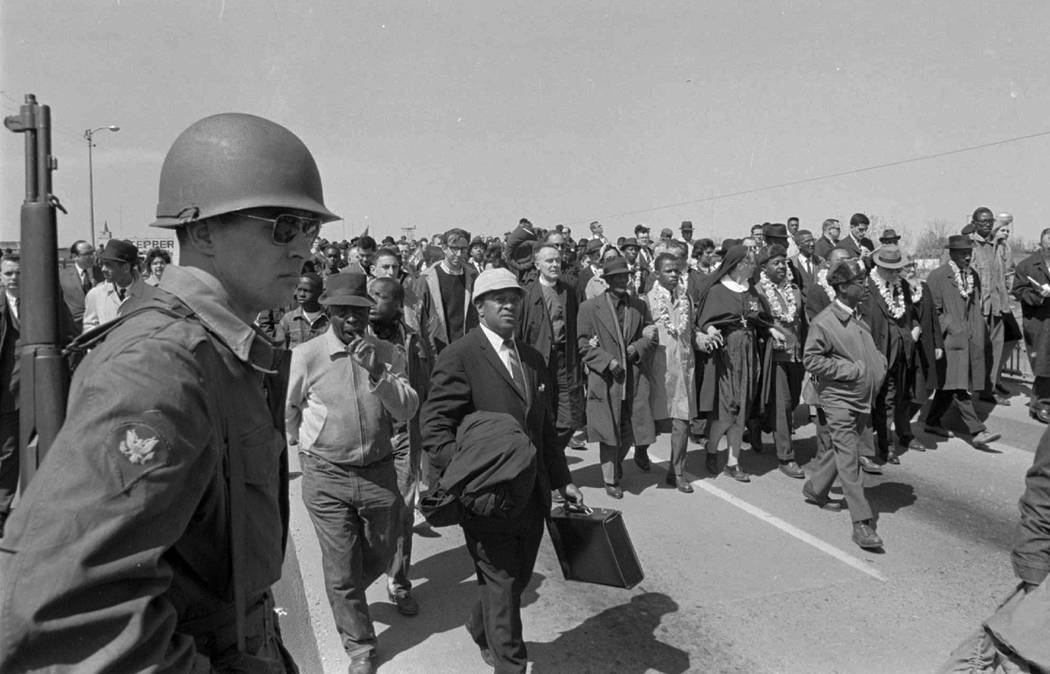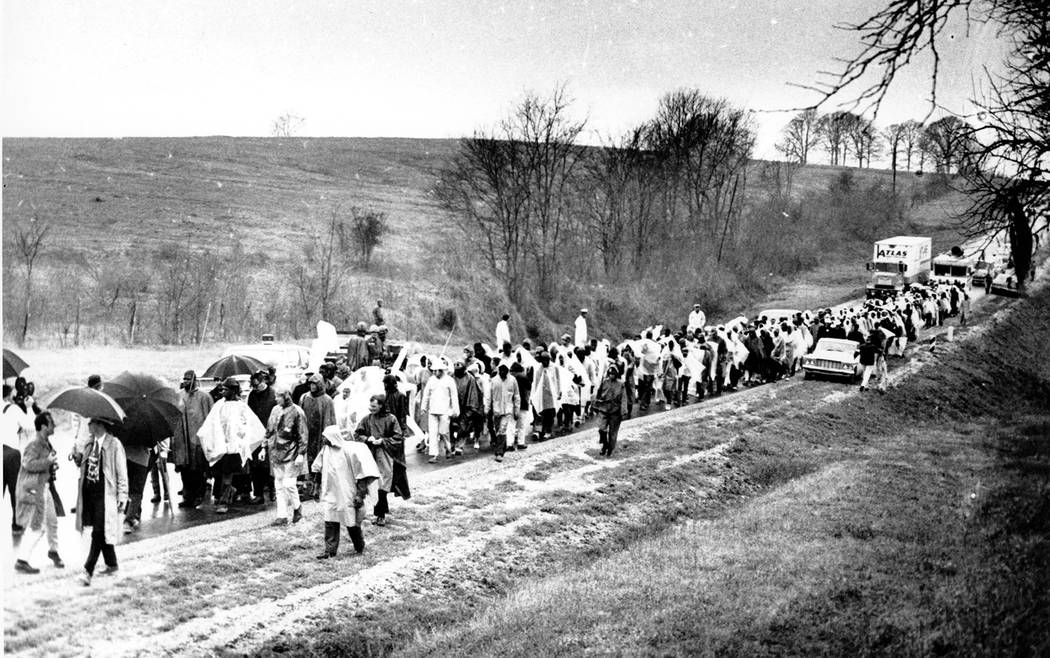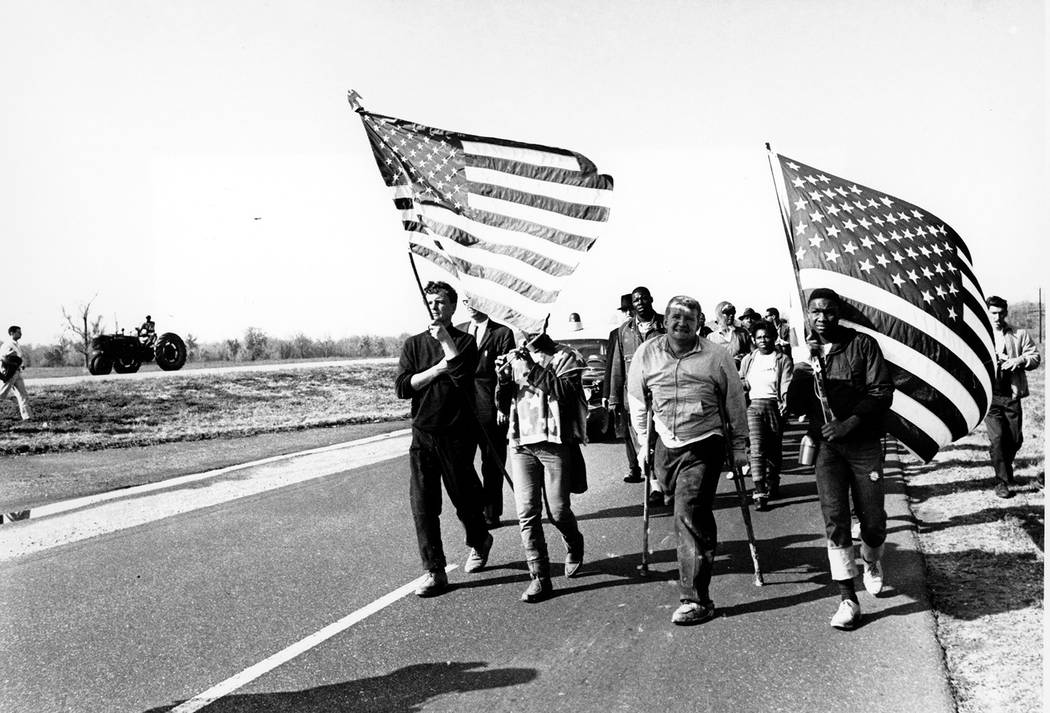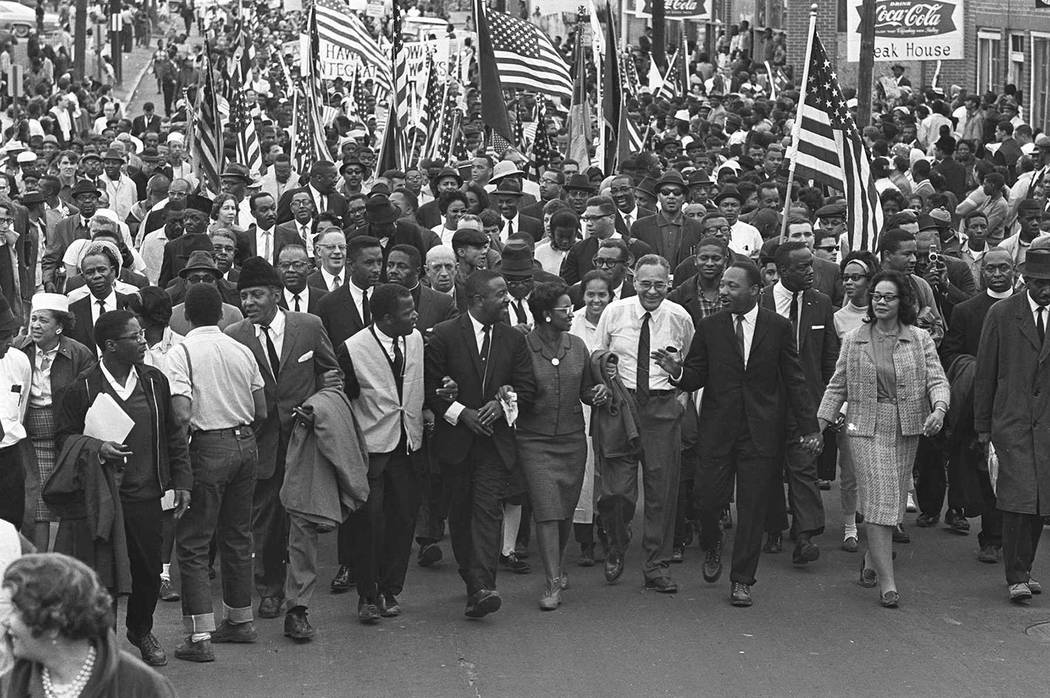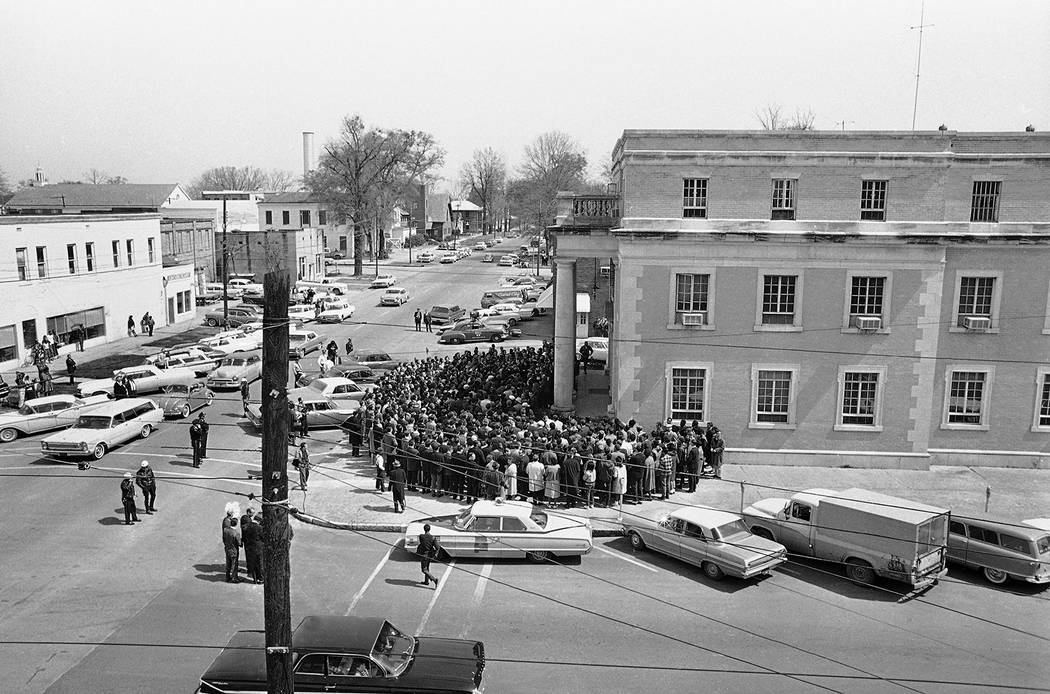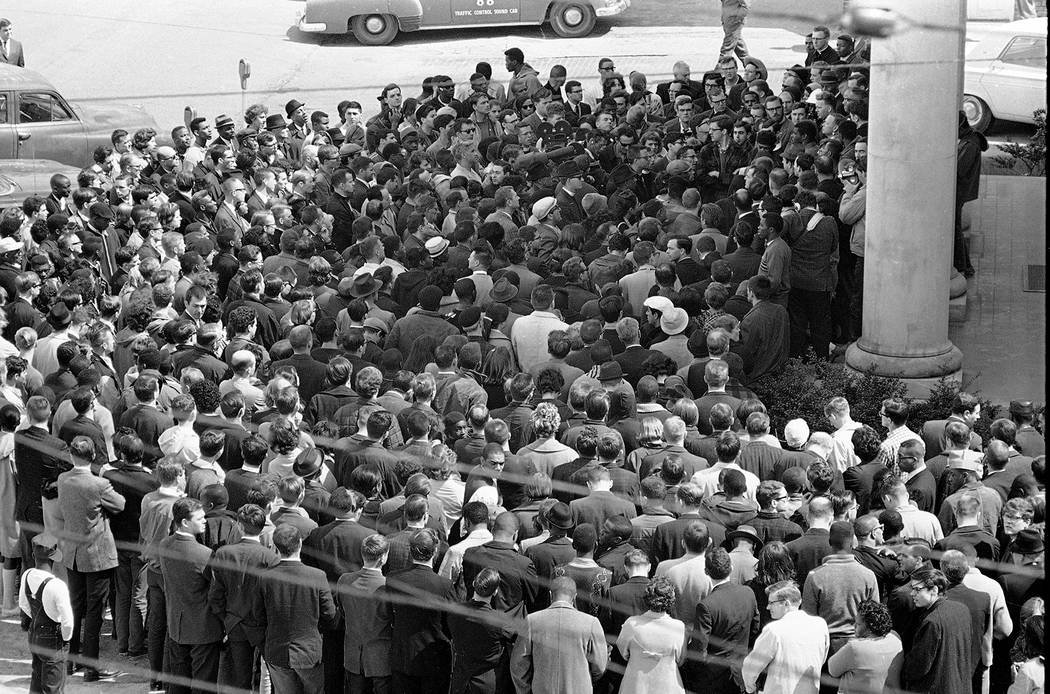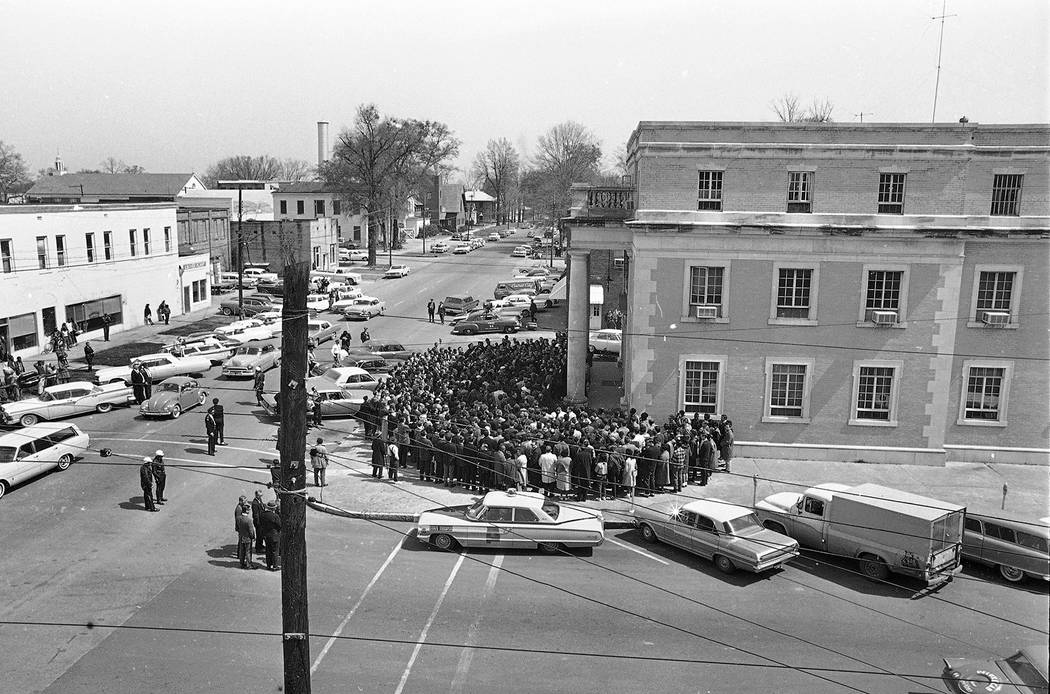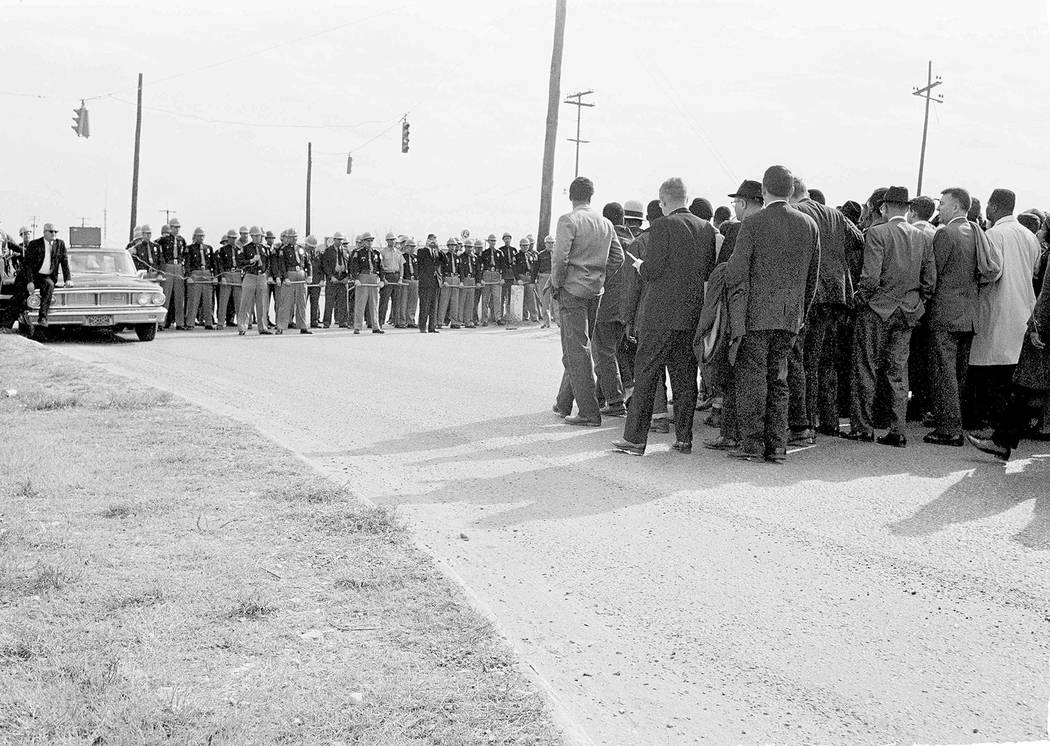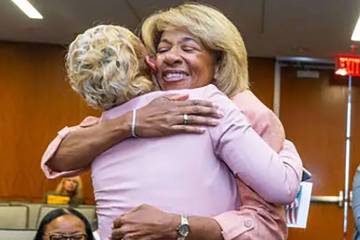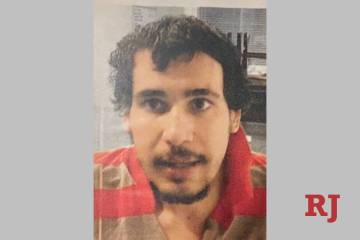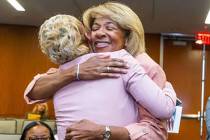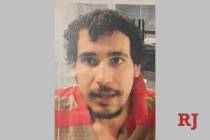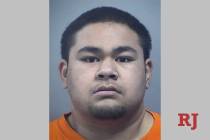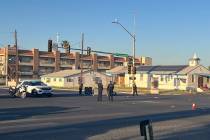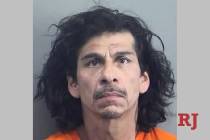Las Vegas’ Civil Rights Film Fest features Selma-Montgomery marcher
Ethel Archibald of Las Vegasremembers rushing from class to join in the Selma-Montgomery civil rights march in 1965, precautions African American relatives had to take in the Deep South, and shaking the Rev. Martin Luther King Jr.’s hand.
“He worked all the time, but he had soft hands,” she said of her encounter with the civil rights leader outside a church in Alabama.
Archibald, a longtime Las Vegas resident and teacher, was one of thousands of protesters marching about 50 miles from Selma to Alabama’s capital to demand equal voting rights when she was a 19-year-old college student at Selma University.
She will be one of several panelists Saturday at Civil Rights Film Fest 2020 at West Las Vegas Library. The event, co-sponsored by the Las Vegas Alumni Chapter of Delta Sigma Theta Sorority, starts at noon and features two films: “COINTELPRO 101” and “Sisters of Selma.” The first film highlights how groups such as the FBI and local authorities worked against African American civil rights activists. The latter depicts the role of African American and white nuns during the Selma-Montgomery march.
Ties to present
“We try to get films that have to do with something going on now and use them for teaching moments on how (civil rights) have changed or haven’t changed,” said Nedra Cooper, the alumni chapter’s state social action chairwoman. She added that although the march prompted the Voting Rights Act of 1965 — which banned literacy tests and mandated federal oversight of voter registration for areas where the tests had been used, among other things — activists are still fighting voter suppression.
Attendees will be able to participate in the panel discussion following the movies.
Archibald was in the march with three of her brothers — against their parents’ wishes. She would go to her classes during the day, get a ride to the march, participate and then go back home for the day.
“Your parents were stuck because they had bills to pay and food to put on the table and had mouths to feed. We (young adults) said we didn’t have to stand there and take (discrimination),” she said.
Archibald recalled the National Guard was ordered to be around the African American neighborhood her family lived in: George Washington Carver.
“It was like calling the fox to watch the henhouse,” she said.
Around this time, young African American adults started questioning why they wouldn’t see themselves in catalogs and couldn’t use main entrances, Archibald said.
‘Change the laws’
“They wanted us to prepare the food, but we couldn’t sit down and eat it. We said, you have to change the laws,” Archibald said.
At the polls, employees “asked questions they didn’t even know the answer to themselves — that kind of craziness.”
Heading back to her hometown of Selma and seeing museums documenting the protest and segregation can be tough. She remembers an uncle from Michigan who got into a spat with a white man, when she was a child.
After that, her uncle could only visit unannounced and left the same day as his arrival for his safety.
When she visited the National Memorial for Peace and Justice — which recognizes thousands of who were lynched by name (some were listed as “unknown”) — it reminded her that could have happened to her uncle.
“I couldn’t take it,” Archibald said, adding the only place that made her feel the same way was when she visited the site of Auschwitz concentration camp in Poland.
Signs of hope
On a recent trip to Selma she passed a school near the neighborhood where she grew up. It warmed her heart to see the school — which used to be only for African American children — was desegregated. Archibald even saw a white student as the lead drummer for the band.
She hopes those who attend the film festival will be inspired and reminded to fight for justice when it is needed.
“My take on it, anytime there’s an injustice for one group of people, it’s an injustice for all of us. If you see something, say something,” Archibald said. “The takeaway is that whatever conditions that are not just and not right, it’s your duty to change the law and make it right.”
Contact Alex Chhith at achhith@reviewjournal.com or 702-383-0290. Follow @alexchhith on Twitter.
If you go
What: Civil Rights Film Fest 2020
Where: West Las Vegas Library, 951 W. Lake Mead Blvd.
When: Noon-5 p.m. Saturday
Contact: Library at 702-507-3989 or Nedra Cooper at 702-355-5240.
About Ethel Archibald
Graduated from Selma University with an associate’s degree and Alabama State University with a bachelor’s degree, in 1967. Later, she got a master’s degree from Eastern New Mexico University.
Worked for the Clark County School District for 25 years and taught elementary, middle and high school classes. She also worked as a monitor for Title 1 funds and trained in teachers, parents and held workshops.



